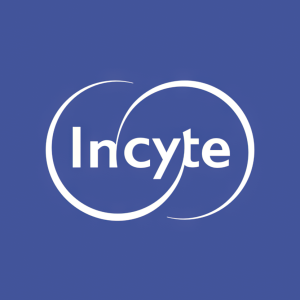Incyte Announces Positive CHMP Opinion for Capmatinib (Tabrecta®) for the Treatment of METex14 Advanced Non-Small Cell Lung Cancer
-
The positive opinion from the CHMP is based on Phase 2 GEOMETRY mono-1 study showing an overall response rate (ORR) of
51.6% in a cohort evaluating second-line patients only and44% in all previously-treated patients with advanced non-small cell lung cancer (NSCLC) harboring alterations leading to MET exon 14 (METex14) skipping1 -
METex14 skipping is a recognized oncogenic driver2 occurring in 3
-4% of NSCLC cases3; therapies targeting difficult-to-treat mutations may provide new options for patients -
Tabrecta was discovered by
Incyte scientists, and Novartis has exclusive worldwide development and commercialization rights
“We are pleased by the positive CHMP opinion recommending capmatinib as a treatment for certain patients with METex14 advanced non-small cell lung cancer and encouraged by what this
The CHMP opinion is based on data the Phase 2 GEOMETRY mono-1 study that demonstrated positive overall response rates (ORR) among adult patients with advanced NSCLC whose tumors have alterations leading to METex14 skipping1. Based on data presented at the 2021
“Patients with alterations leading to METex14 skipping have an urgent need for treatment options, as this form of lung cancer is aggressive, often diagnosed in an advanced stage and frequently comes with a poor prognosis,” said
In the
Novartis has exclusive worldwide development and commercialization rights to Tabrecta.
About GEOMETRY mono-1
The Novartis-sponsored GEOMETRY mono-1 trial is a Phase 2, multi-center, non-randomized, open-label, multi-cohort study in adult patients with EGFR wild-type, ALK-negative rearrangement, advanced NSCLC with alterations that lead to MET exon-14 skipping who received 400 mg of capmatinib orally twice daily1.
Patients were assigned to cohorts on the basis of MET status and previous lines of therapy. The primary endpoint was overall response rate (ORR) based on the Blinded Independent Review Committee (BIRC) assessment per RECIST v1.1. The key secondary endpoint was duration of response (DOR) evaluated by BIRC1.
Mature data from the trial, including from an expansion cohort analysis, showed Tabrecta demonstrated a median duration of response of 9.7 months (
Overall, Tabrecta demonstrated a manageable safety profile and there were no new safety signals or unexpected safety findings1. The most common treatment-related adverse events (AEs) (incidence ≥
About Tabrecta® (capmatinib)
Tabrecta is approved in several countries including the
Tabrecta is a kinase inhibitor that targets MET. Tabrecta was discovered by
About MET exon 14 skipping
MET (mesenchymal-epithelial transition), a receptor tyrosine kinase coded by the MET gene, normally plays an important role in cell signaling, proliferation and survival2. Many cancers are associated with abnormal signaling through the MET receptor pathway, caused by multiple mechanisms including point mutations, insertions, and deletions that lead to skipping of exon 14. MET exon 14 (METex14) skipping is an oncogenic alteration in NSCLC that can result in overstimulation of the MET pathway2.
Patients with alterations that lead to METex14 skipping often have a poor prognosis due to the aggressiveness of the cancer and limited treatment options6-8.
About
Forward-Looking Statements
Except for the historical information set forth herein, the matters set forth in this press release, including statements regarding whether and when capmatinib might be approved for use in
These forward-looking statements are based on the Company’s current expectations and subject to risks and uncertainties that may cause actual results to differ materially, including unanticipated developments in and risks related to: unanticipated delays; further research and development and the results of clinical trials possibly being unsuccessful or insufficient to meet applicable regulatory standards or warrant continued development; the ability to enroll sufficient numbers of subjects in clinical trials and the ability to enroll subjects in accordance with planned schedules; the effects of the COVID-19 pandemic and measures to address the pandemic on the Company’s clinical trials, supply chain and other third-party providers and development and discovery operations; the Company’s dependence on its relationships with its collaboration partners; the efficacy or safety of the Company’s products and the products of the Company’s collaboration partners; the acceptance of the Company’s products and the products of the Company’s collaboration partners in the marketplace; market competition; sales, marketing, manufacturing and distribution requirements; greater than expected expenses; expenses relating to litigation or strategic activities; and other risks detailed from time to time in the Company’s reports filed with the
______________________
1 Wolf J, Garon EB, Groen HJM, Tan DSW, Robeva A, Le Mouhaer S, et al. Capmatinib in MET exon 14-mutated, advanced NSCLC: updated results from the GEOMETRY mono-1 study. Poster presented at 2021
2 Sadiq AA, Salgia R. MET as a possible target for non-small-cell lung cancer. J Clin Oncol. 2013;31:1089.
3 Salgia R. MET in lung cancer: biomarker selection based on scientific rationale. Mol Cancer Ther. 2017;16(4):555-565.
4 Data on file.
5 Data on file
6 Tong JH, et al. MET amplification and exon 14 splice site mutation define unique molecular subgroups of non-small cell lung carcinoma with poor prognosis.
7 Smyth EC, et al. Emerging molecular targets in oncology: clinical potential of MET/hepatocyte growth-factor inhibitors. Onco Targets Ther. 2014;7:1001-1014.
8 Cappuzzo F, Marchetti A, Rossi E. Increased MET gene copy number negatively affects survival of surgically resected non-small-cell lung cancer patients. J Clin Oncol. 2009;27:1667-1674.
View source version on businesswire.com: https://www.businesswire.com/news/home/20220421006067/en/
Media
+1 302 498 6171
cloveman@incyte.com
Investors
+1 302 274 4773
cchiou@incyte.com
Source:







